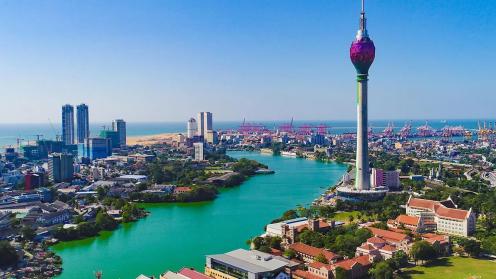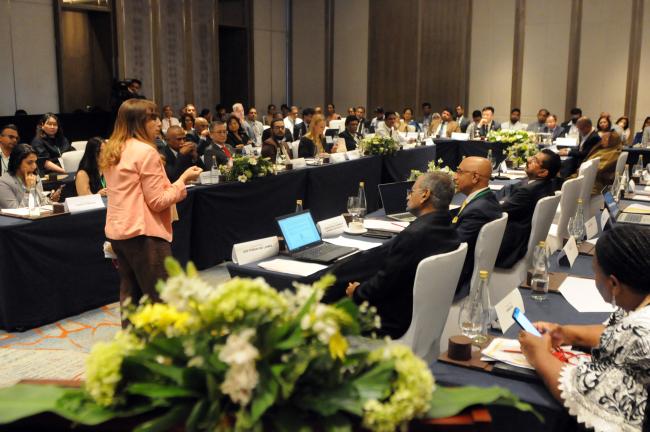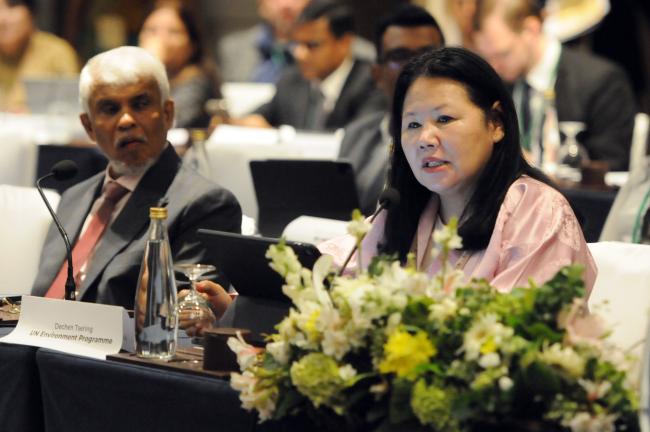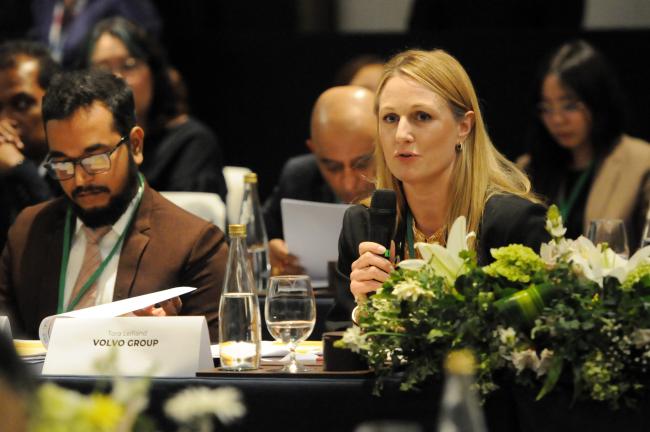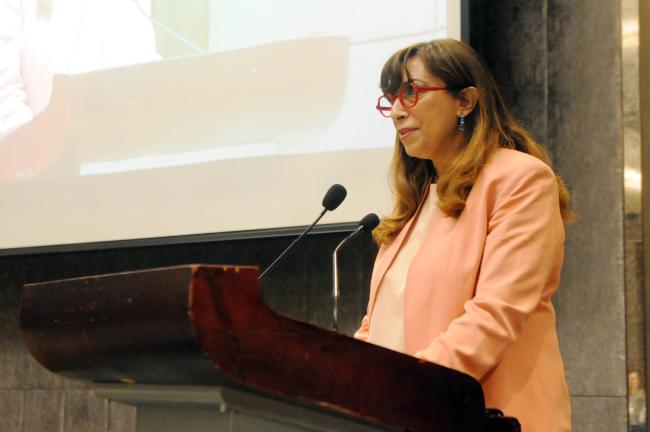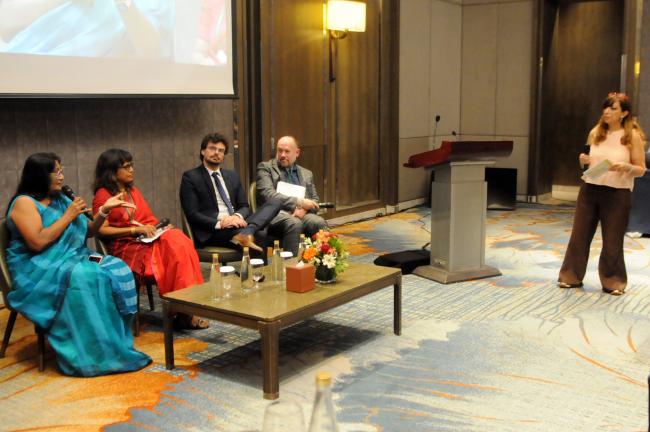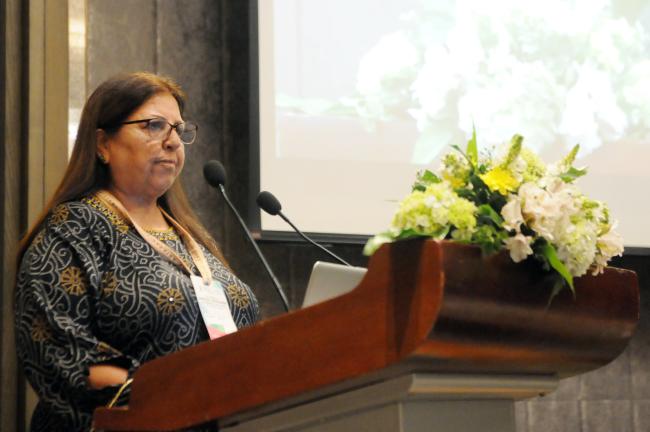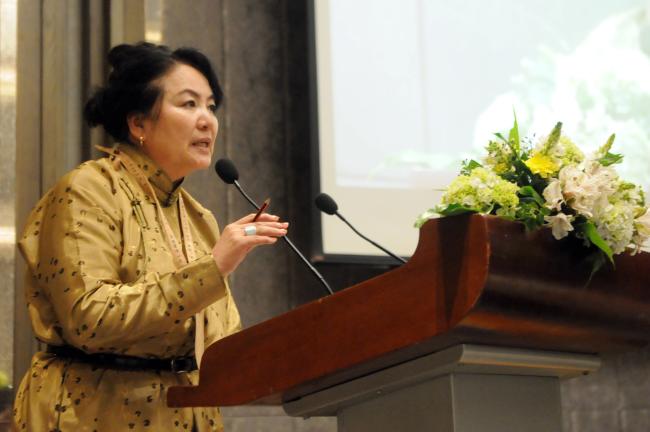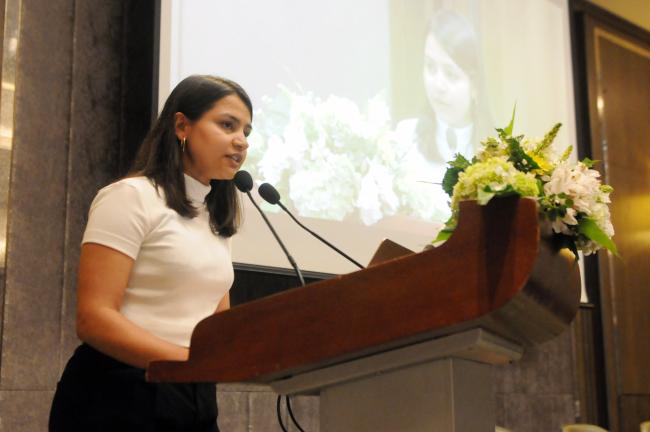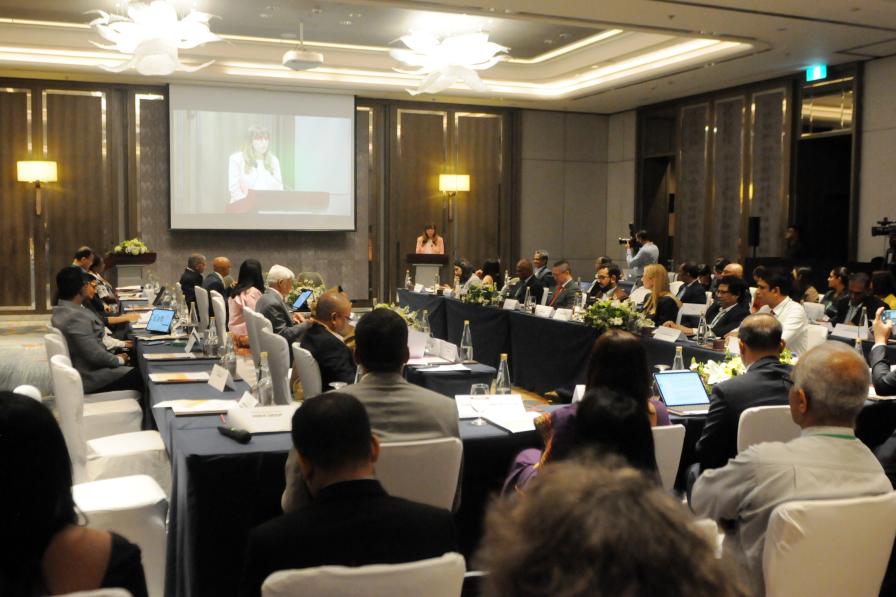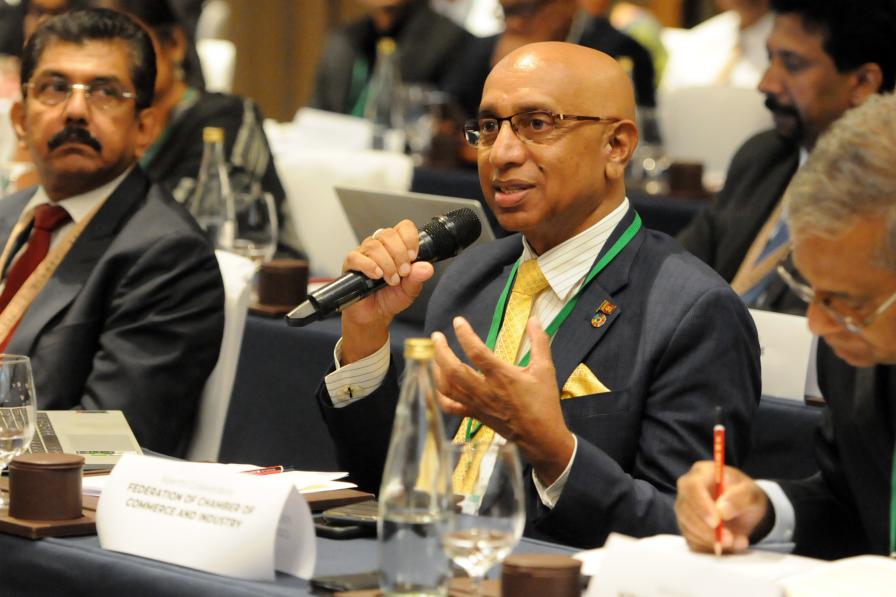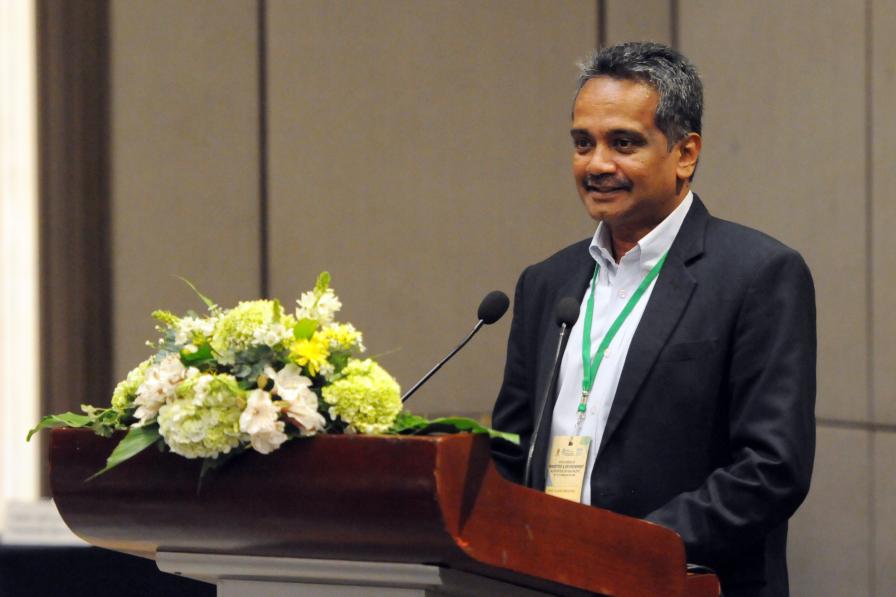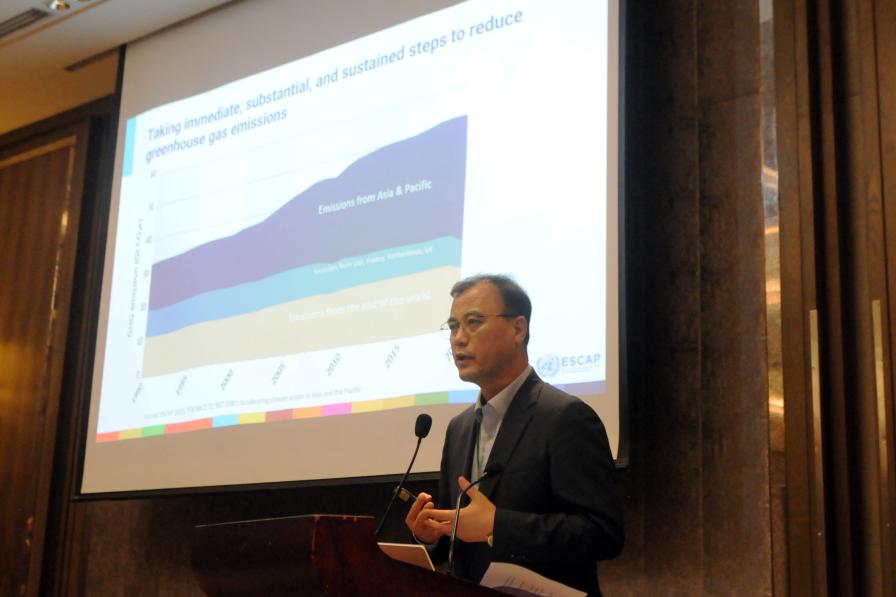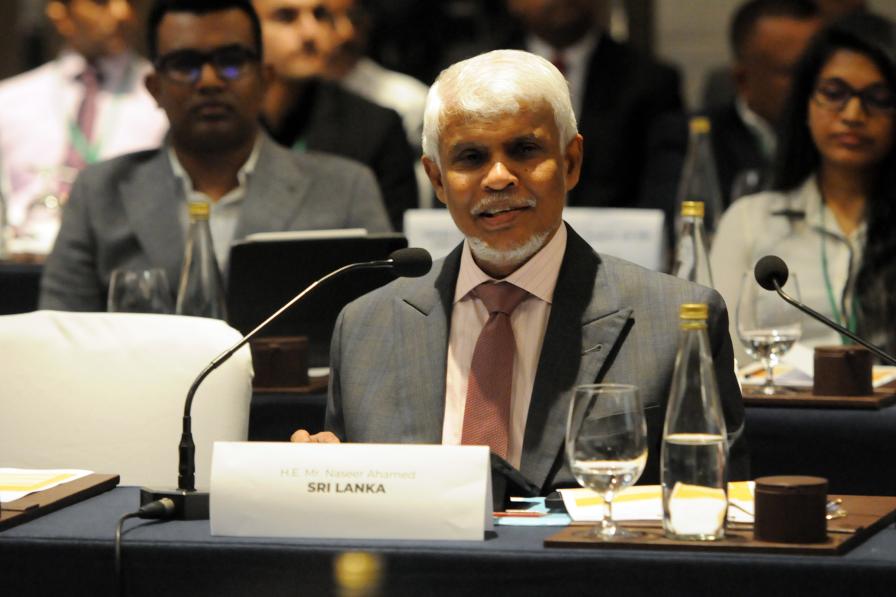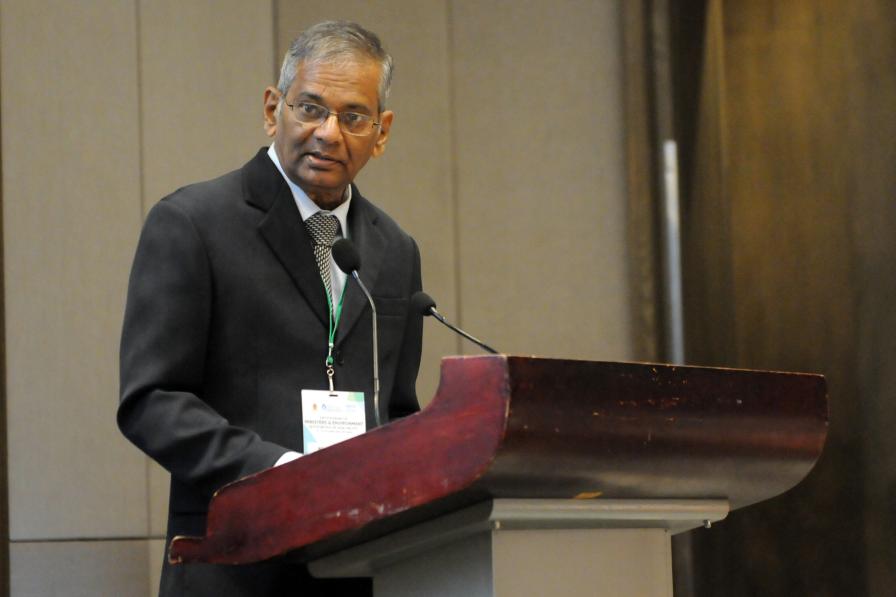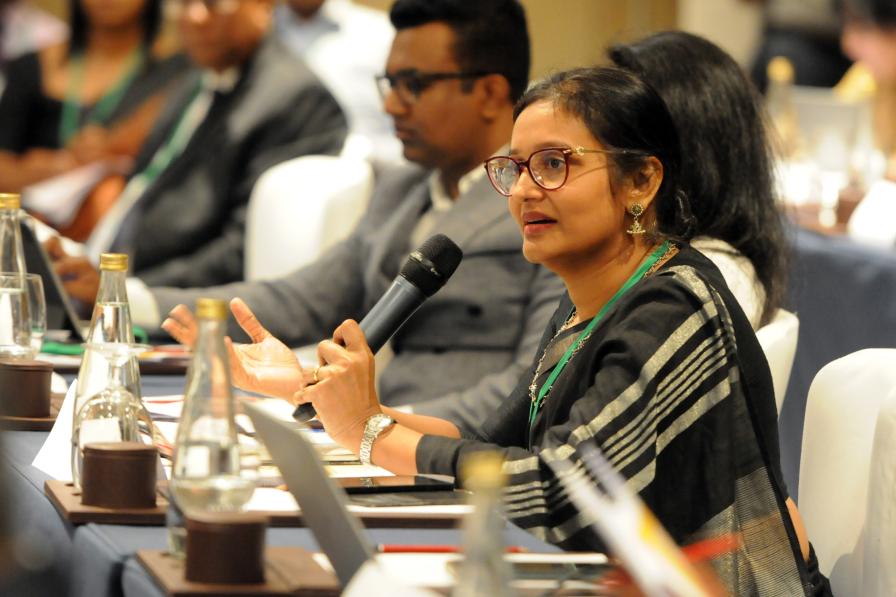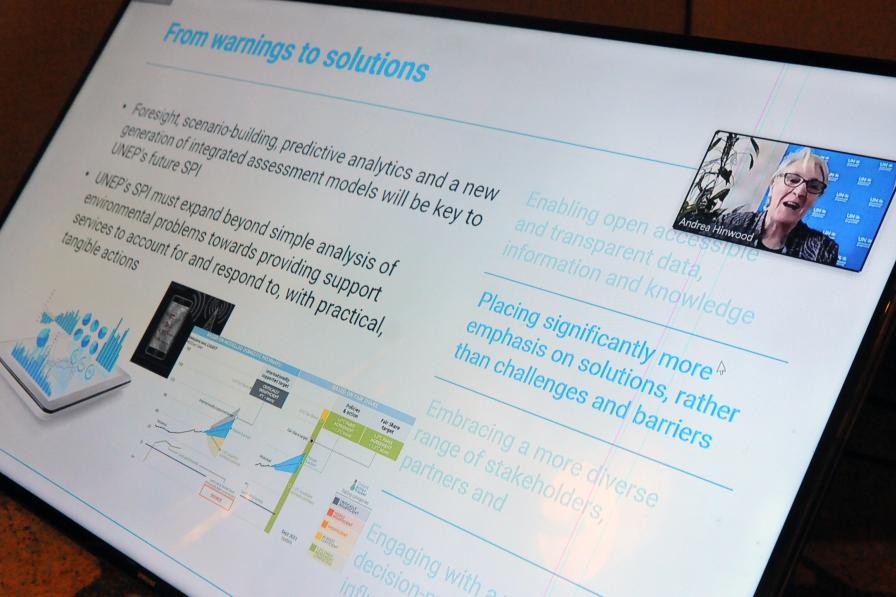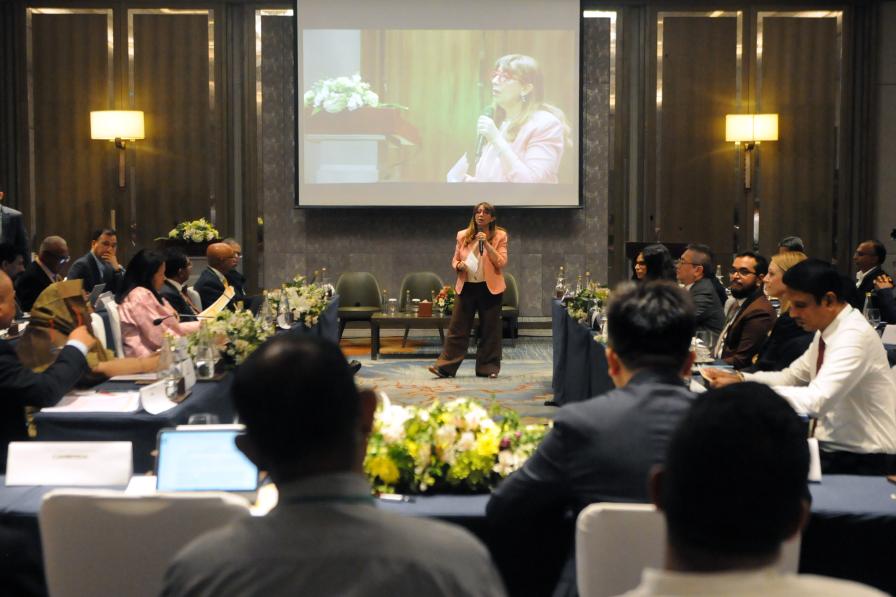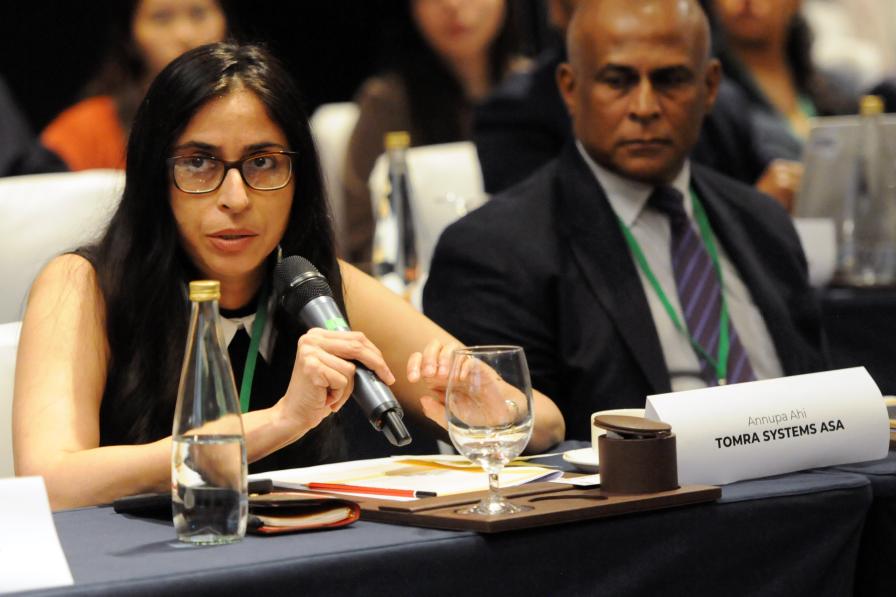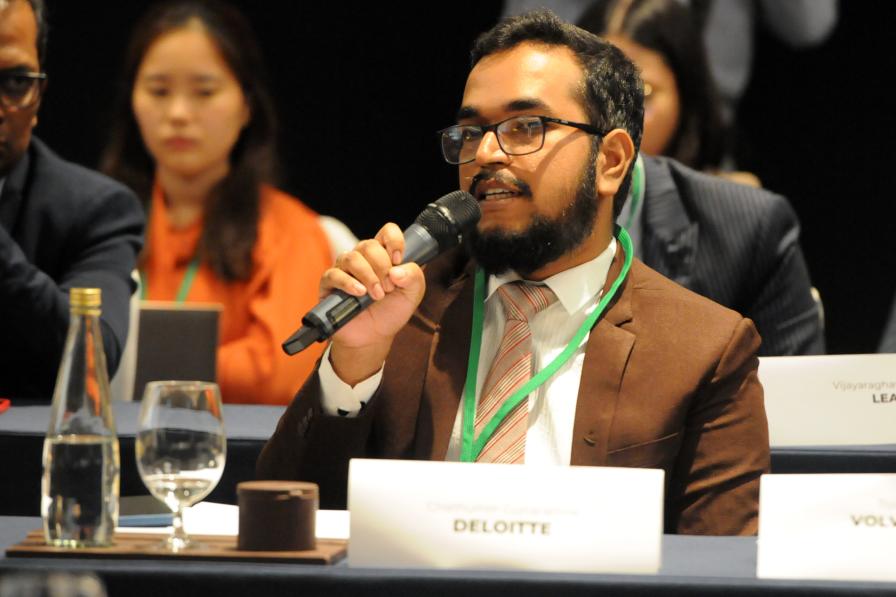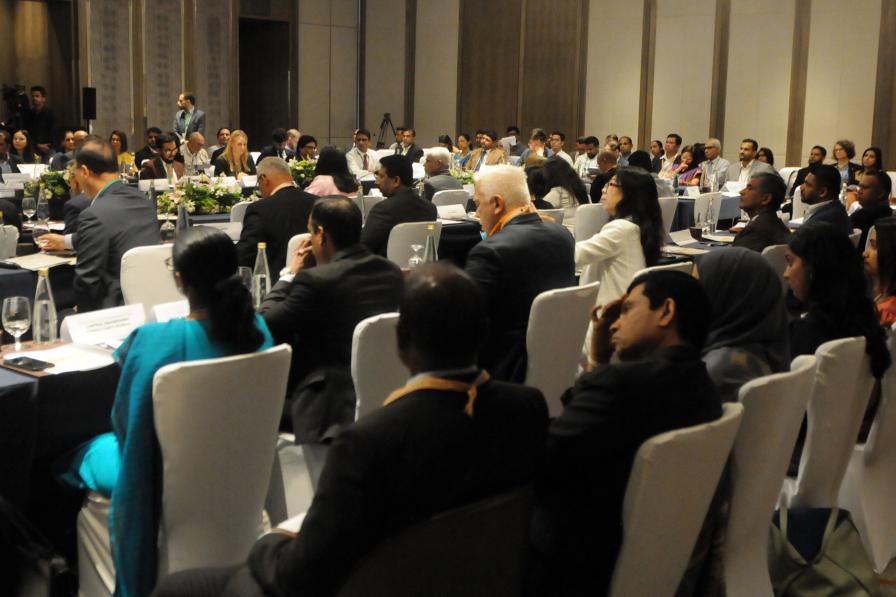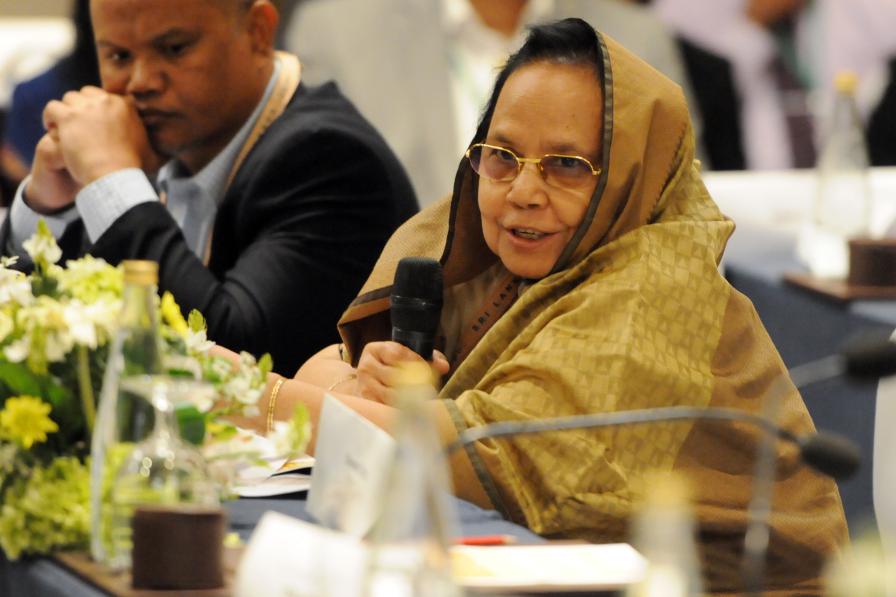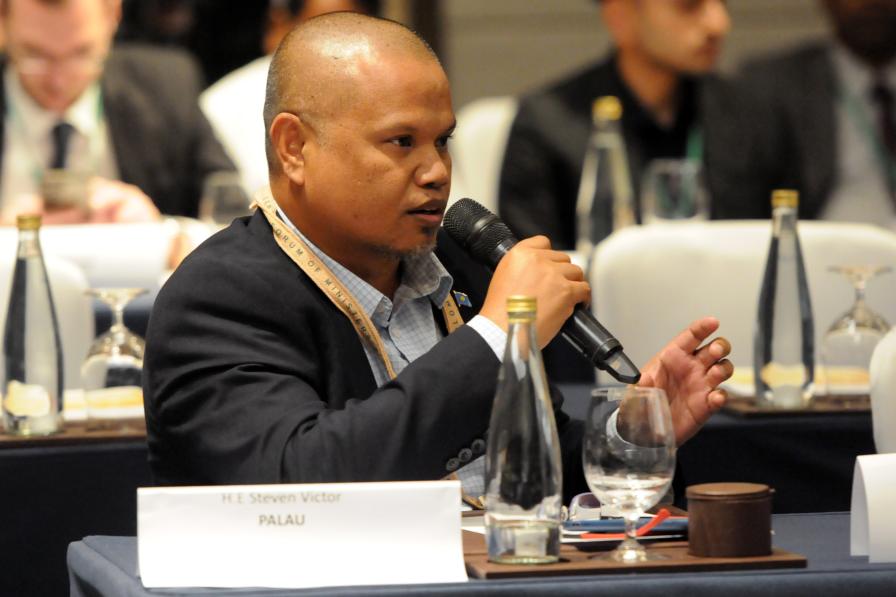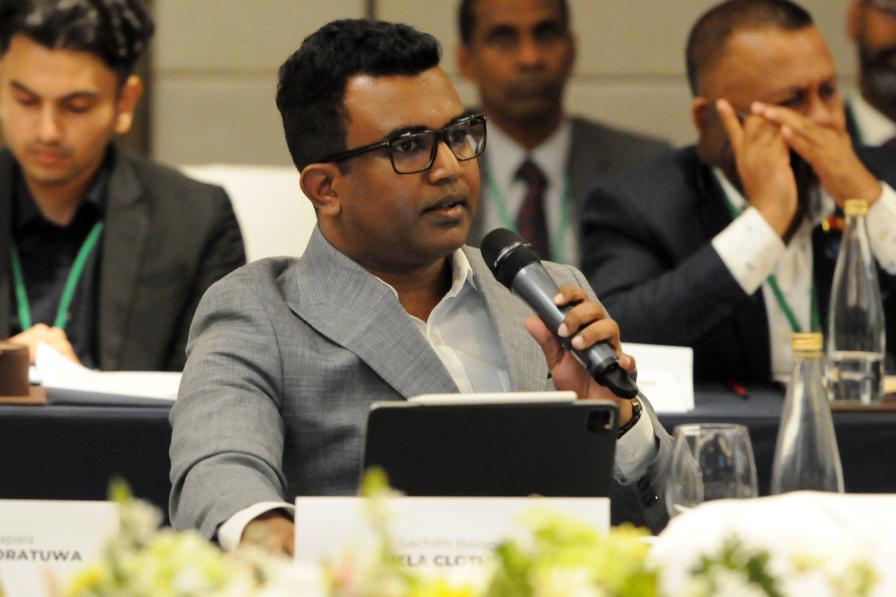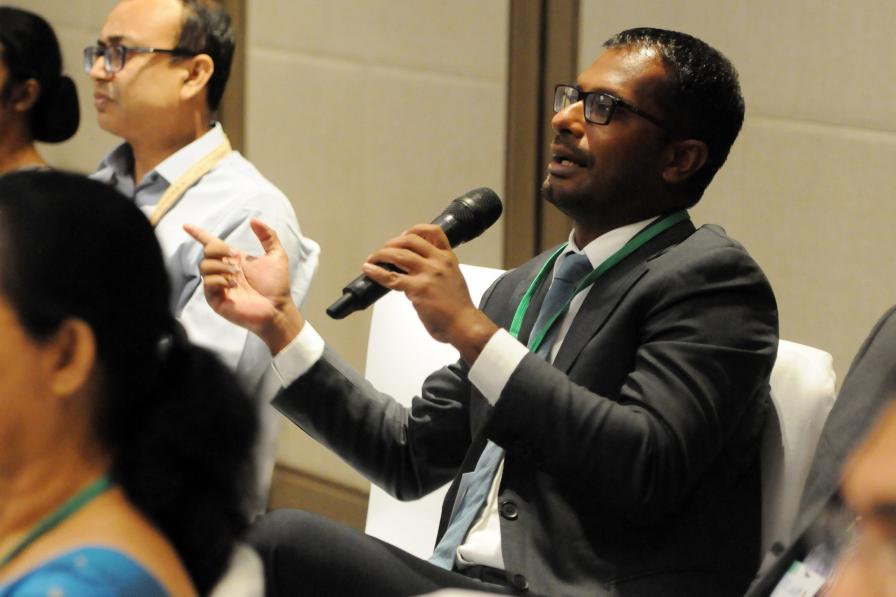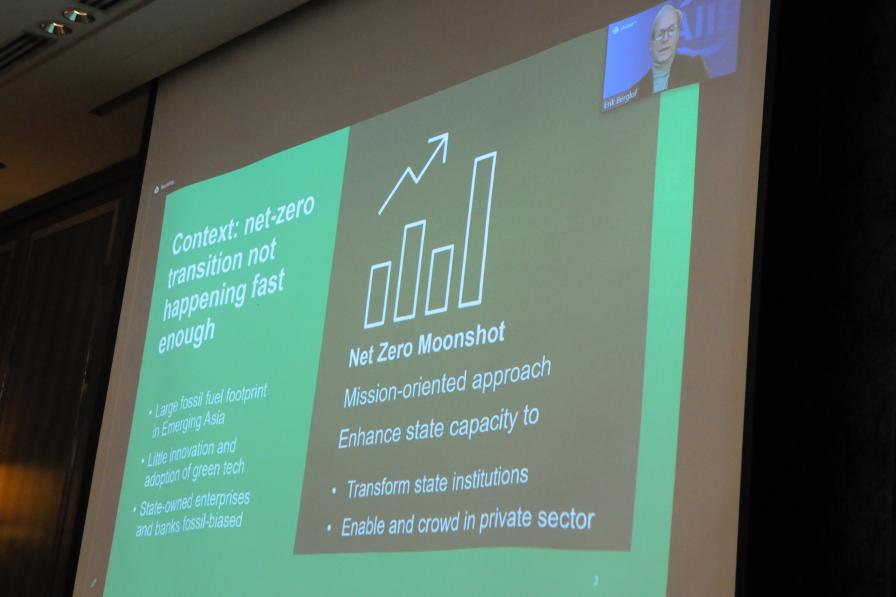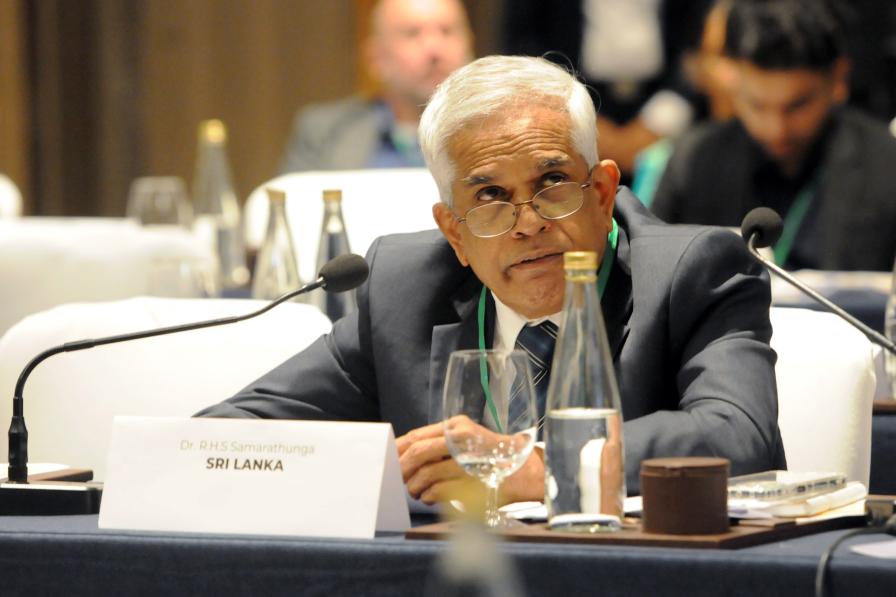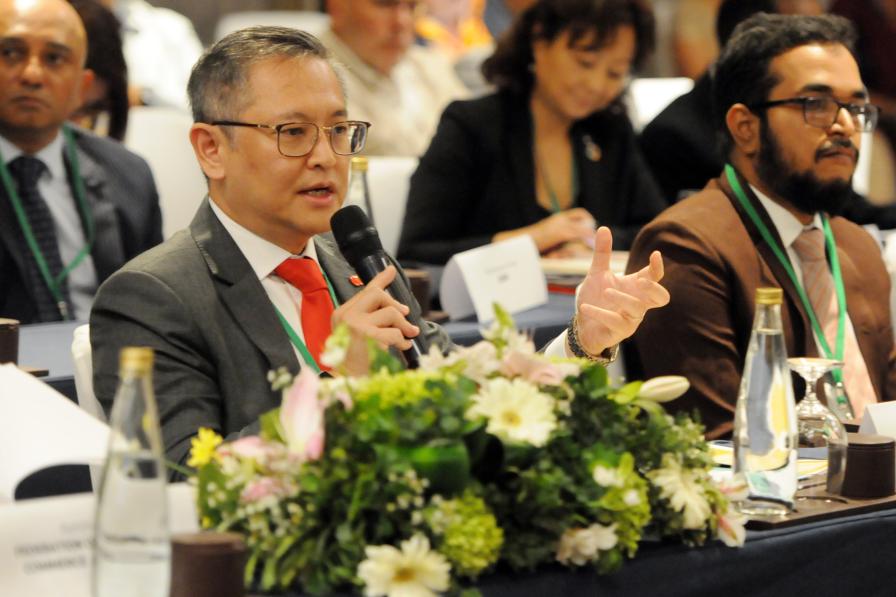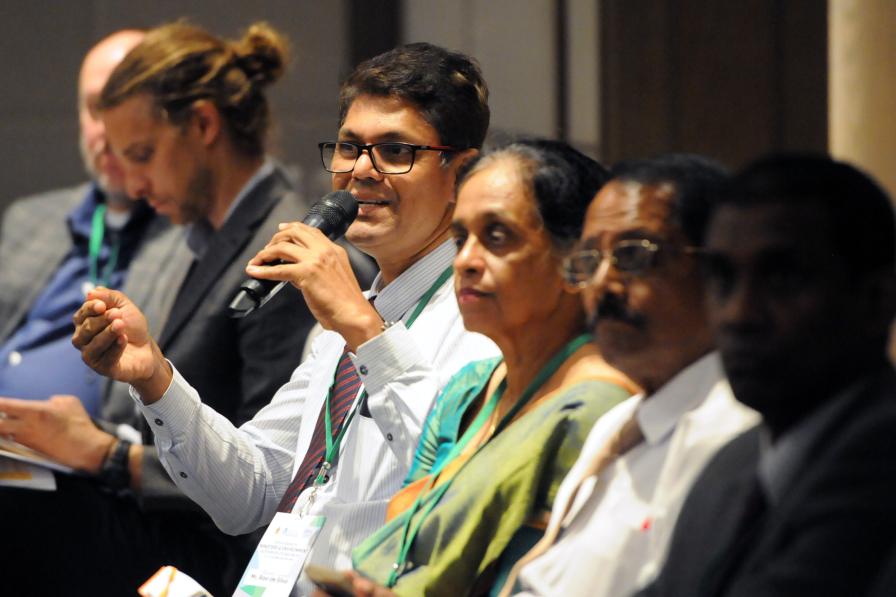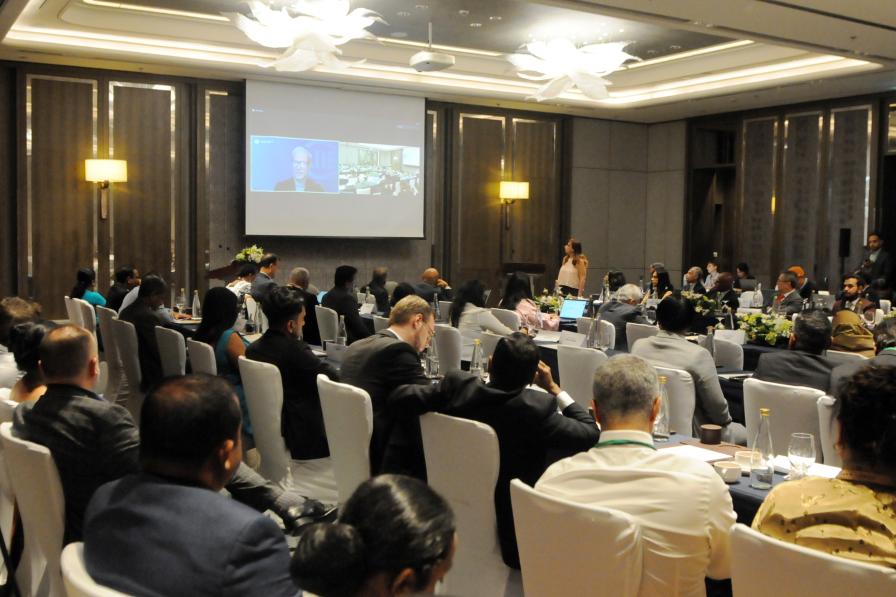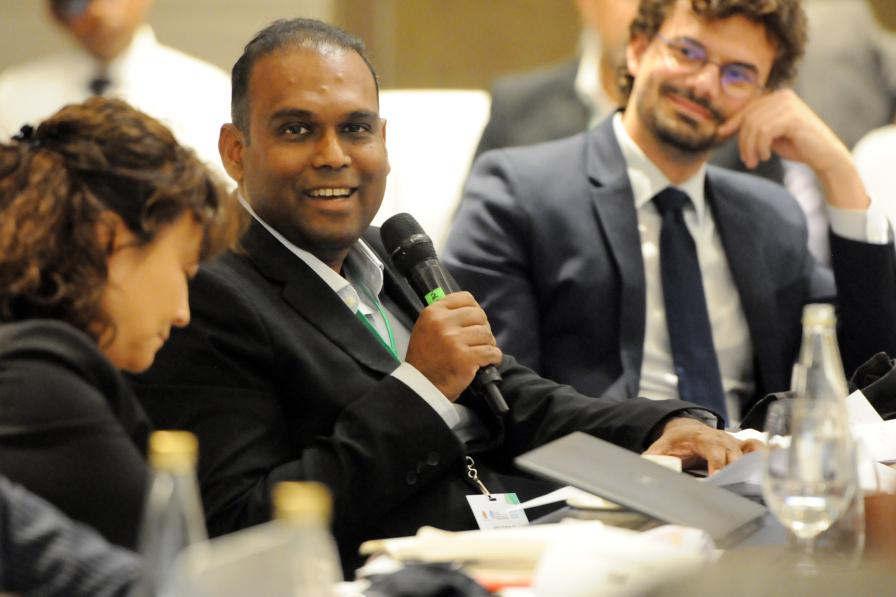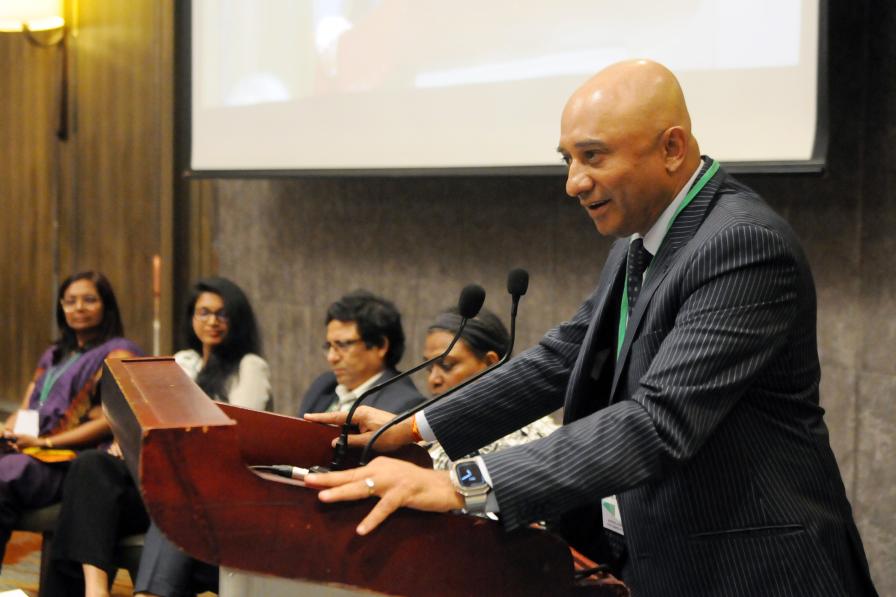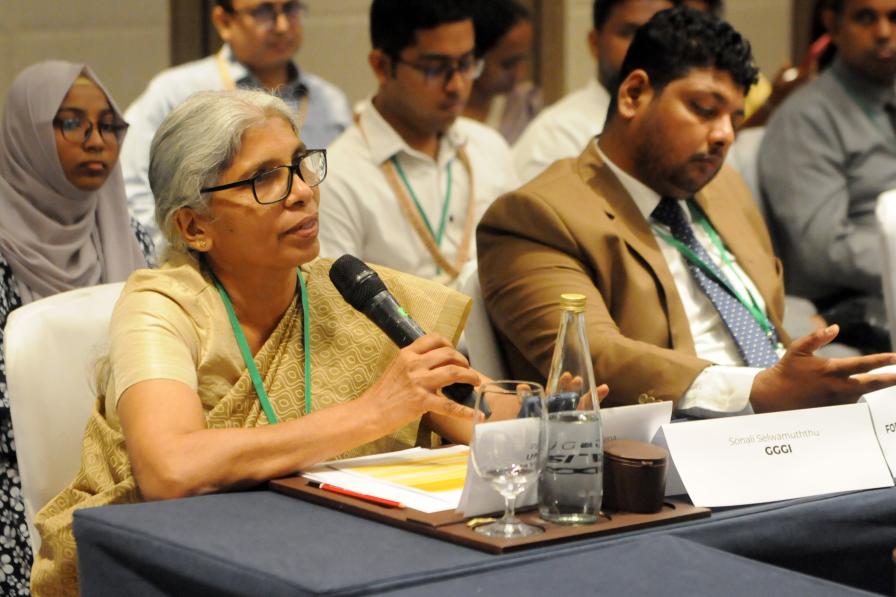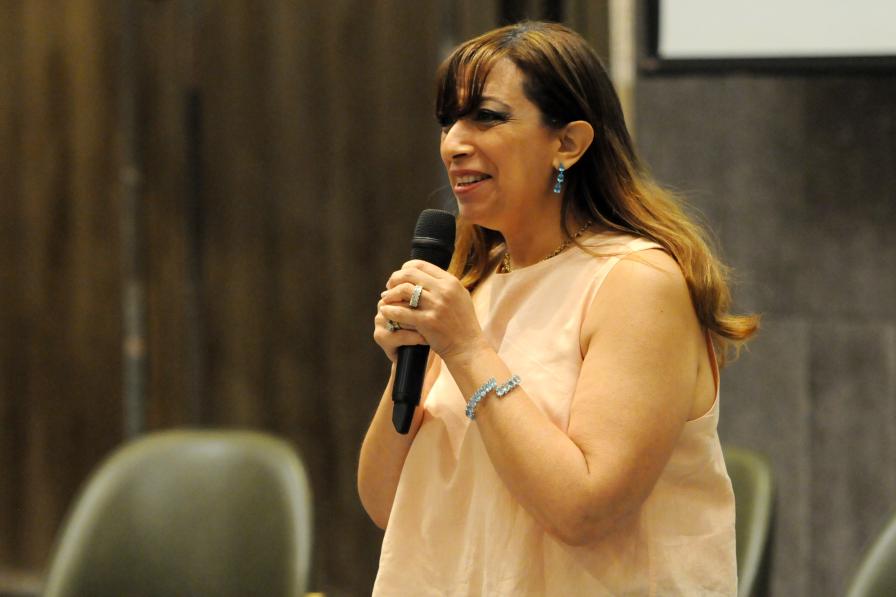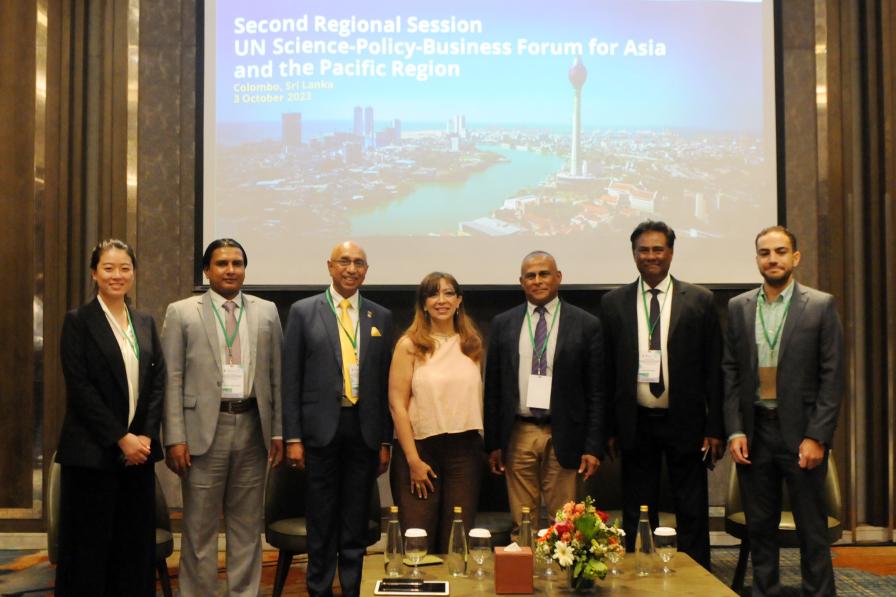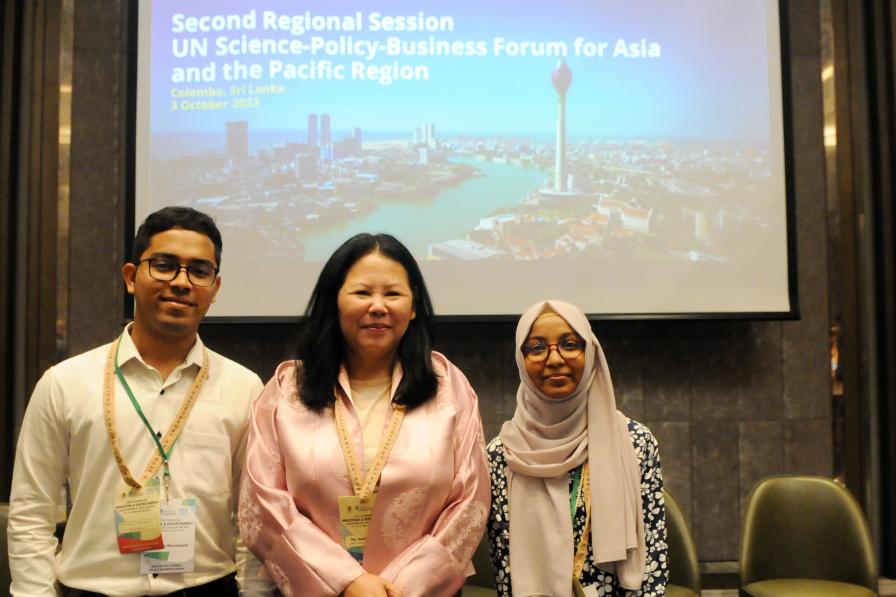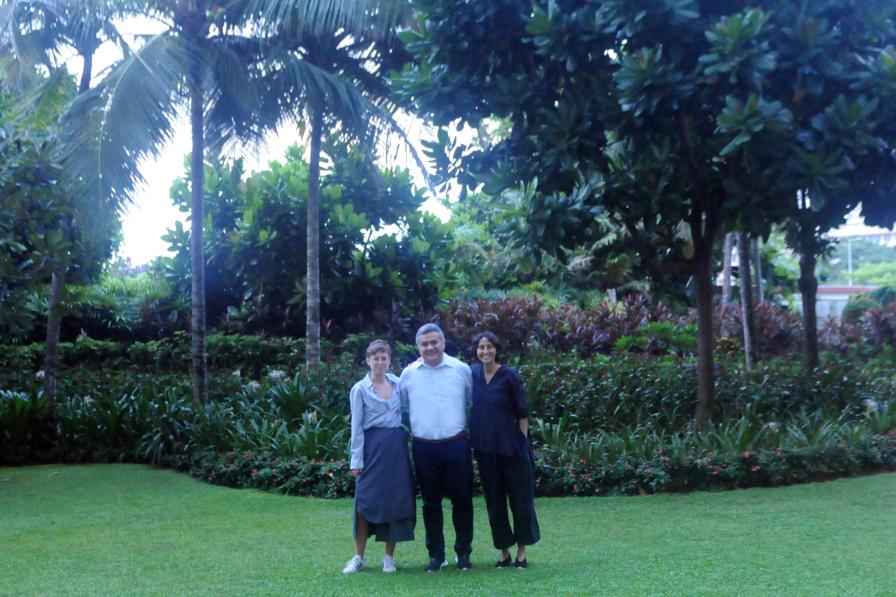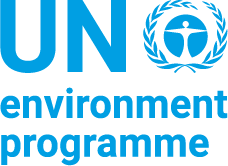Under the theme “Putting sustainability into gear in the Asia-Pacific region: Future Proofing Economies, People and the Planet,” the first in-person and second overall UN Science-Policy-Business Forum on the Environment for the Asia-Pacific region (AP-SPBF 2023) was held in Colombo, Sri Lanka, in parallel to the fifth Forum of Ministers and Environment Authorities of Asia Pacific.
Focused on the need for policy cohesion in building opportunities for sustainable growth and on harnessing the power of sustainable infrastructure for an equitable and resilient future, participants engaged in lively discussions on issues including regulatory frameworks; how to finance equitable green growth in a changing environment; the economic and social impact of climate risk for enterprises; the future of energy transitions; digital infrastructure and transformation; and building strong foundations for circular economy infrastructure.
Participants welcomed the wide consultation processes facilitated by the UN-SPBF allowing industry, finance, government and civil society to address topics related to the green structural transformation, underscoring that a whole-of-society approach is required and much needed. At the same time, the private sector expressed readiness to support decision-making processes by providing information, data and technical advice to aid sound and integrated decision-making.
Session One: Putting sustainability into gear in the Asia-Pacific region
Regulatory frameworks, policies and incentives
The morning discussion centered on the need for policy cohesion.
Speaking from the private sector perspective, participants spoke on the need for both incentives and compliance measures, and emphasized the need for:
- comprehensive whole-of-government approaches;
- long-term thinking accompanied by short-term implementation plans;
- voluntary reporting frameworks;
- region-wide coordination and harmonization of policies across countries; and
- effective policy tools such as carbon pricing accompanied by just transition measures that compensate low-income groups.
From the government perspective, representatives noted proactive measures taken by their governments, including on setting decarbonization goals, industry certifications, dialogue with industries, and initiatives for sustainable practices.
Financing equitable green growth and understanding climate risk
A discussion on pathways to overcome challenges and build opportunity through financing took up the need to ensure that financing for green growth doesn't exacerbate existing socio-economic inequalities. Participants noted gaps in granular level data that organizations, as well as Small Island Developing States and the Least Developed Countries, can use. The discussion also highlighted the need for: public sector investment in capacity building; public-private partnerships to address the cost of financing and risk; and sharing of better practices and success stories amongst the private sector. Discussants concluded on the huge potential for green investment in the region, particularly on renewables, mobility, circular economy, and all aspects of the energy transition.
Session Two: Harnessing the Power of Sustainable Infrastructure for an Equitable and Resilient Future
Speaking on the state of sustainable infrastructure investment in the Asia Pacific region, Erik Berglof, Chief Economist, Asian Infrastructure Investment Bank (AIIB), highlighted climate-performance linked debt and financing in local currencies among creative financing solutions and called for state-owned enterprises to lead by example in decarbonization and switching to renewable energy.
Key messages from the discussions included:
- the importance of legal and risk management frameworks for public-private partnerships to be successful;
- a customized approach to the circular economy in each country, with caution to avoid downcycling;
- the need to harness the power of artificial intelligence and big data to increase efficiency of decision-making and the functioning of economic enterprises; and
- the role of development cooperation in mobilizing financing and the need for a clearer understanding of terminology around green investment.
Closing
The meeting ended with concluding remarks from Civil society and Major Groups as well as Youth representatives, who emphasized people-centered policies and action and called for ensuring inclusivity and meaningful engagement.
Speaking on behalf of civil society, Meena Bilgi, Women Organizing for Change in Agriculture and Natural Resources Management, India, stressed the need for an environmental as well as a social and ethical approach. She spoke on the role of civil society and Major Groups in advances towards a green transformation and emphasized people-centered policies and action, with attention to different forms of knowledge.
Urantulkhuur Mandkhaitsetsen, Centre for Human Rights and Development, Mongolia, for the Major Groups, called for meaningful engagement and trust, stressing the advantages of collaboration with local non-governmental organizations.
Recalling the 2023 Asia-Pacific Youth Environment Forum, held the previous day with over 200 participants, Rubina Adhikari, Asia-Pacific Youth Group, presented on the Asia-Pacific Youth Environment Manifesto 2023. She highlighted, inter alia, the Manifesto’s call for establishing a special fund for youth in the green technology sector and the “Green Jobs for Youth Pact,” as well as the need for greater inclusivity and access for all, including in decision-making processes.
All ENB photos are free to use with attribution. For the 2nd Regional Session of the UN-SPBF for Asia and the Pacific Region, please use: Photo by IISD/ENB | Diego Noguera.
To receive free coverage of global environmental events delivered to your inbox, subscribe to the ENB Update newsletter.
Session Two - Harnessing the Power of Sustainable Infrastructure for an Equitable and Resilient Future
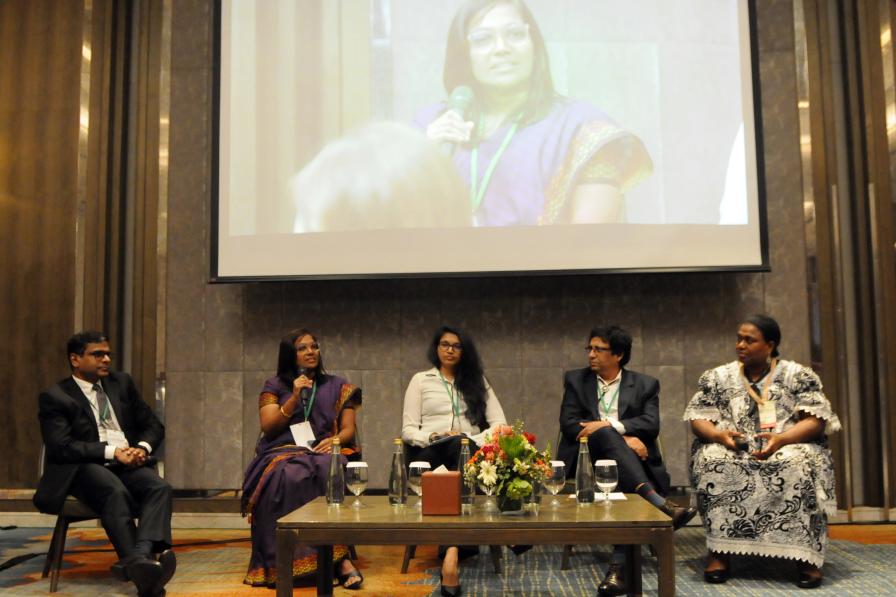
Panel of the session on “Financing Equitable Green Growth and Understanding Climate Risk for Enterprises” (L-R) Nalin Karunathilaka, Vice President, Sustainability, DFCC Bank; Sushara Vidyasagara, Chief, Investment Banking, Commercial Bank of Ceylon; Rashmi Bomiriya, RS Metrics; Anoop Poddar, Eversource Capital, India; and Touasi Tiwok, Ministry of Climate, Environment, Energy and Disaster Management, Vanuatu
Around the Venue
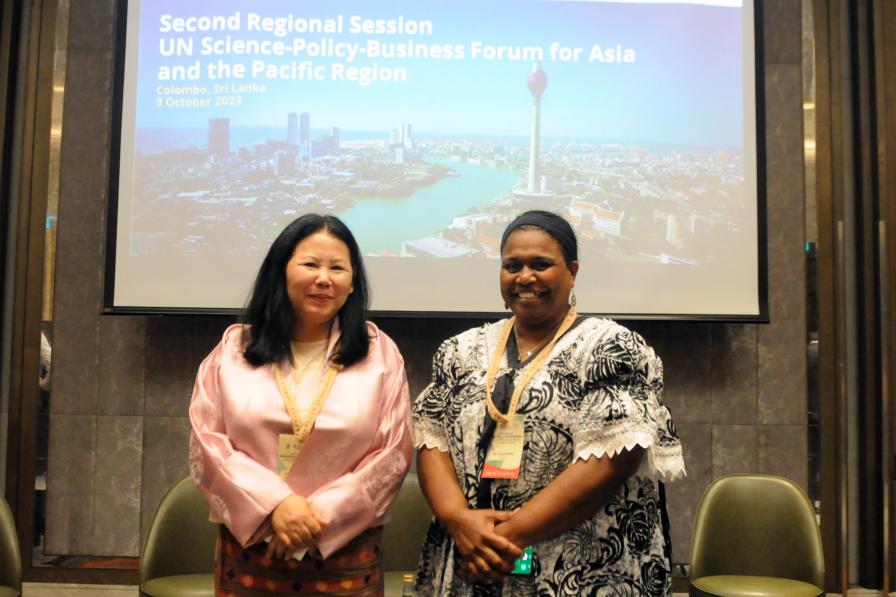
Dechen Tsering, UNEP Regional Director, Asia-Pacific, and Touasi Tiwok, Ministry of Climate, Environment, Energy and Disaster Management, Vanuatu
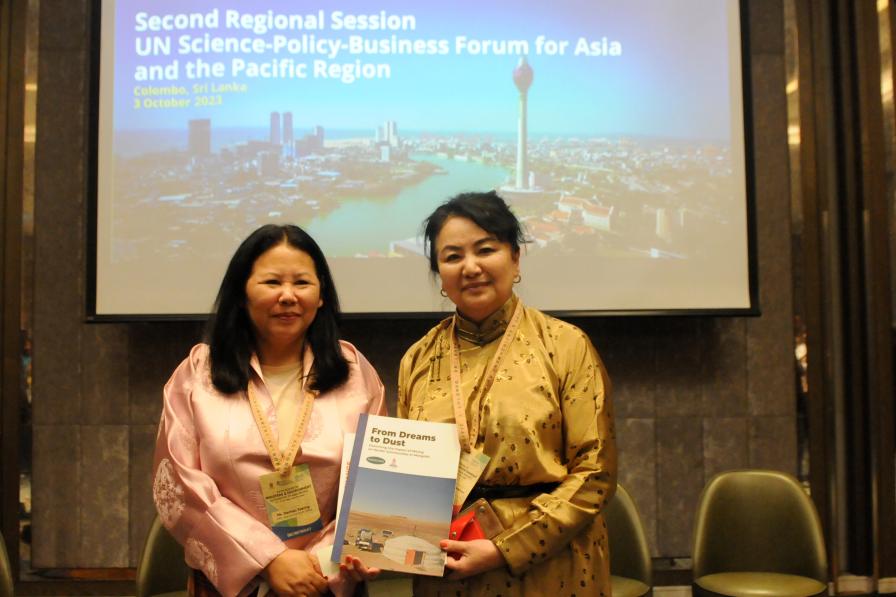
Dechen Tsering, UNEP Regional Director, Asia-Pacific, and Urantulkhuur Mandkhaitsetsen, Center for Human Rights and Development
